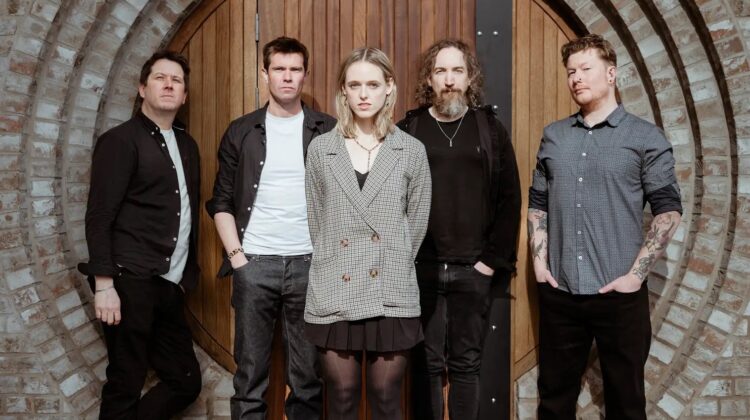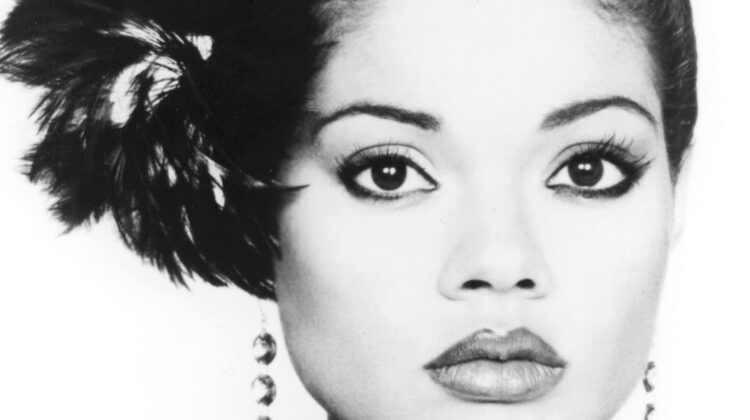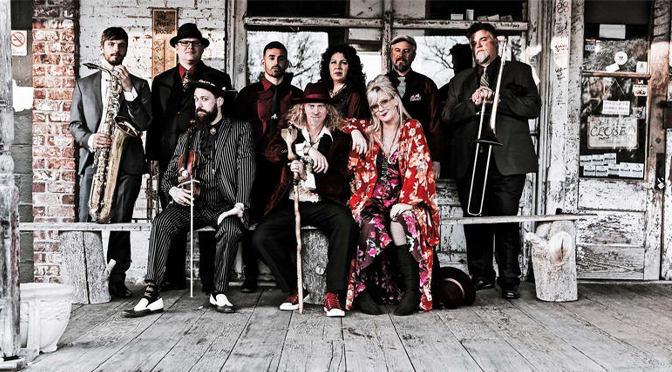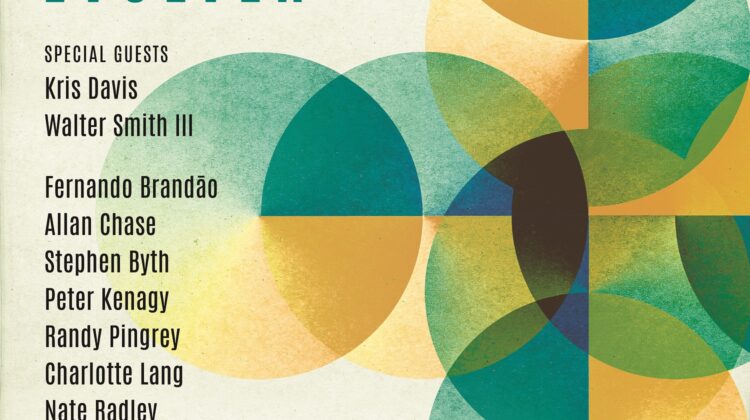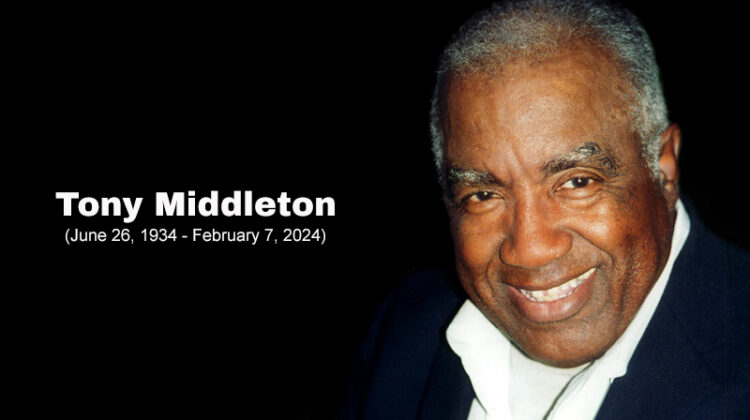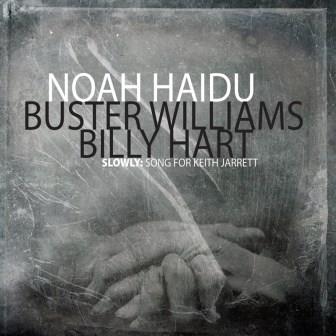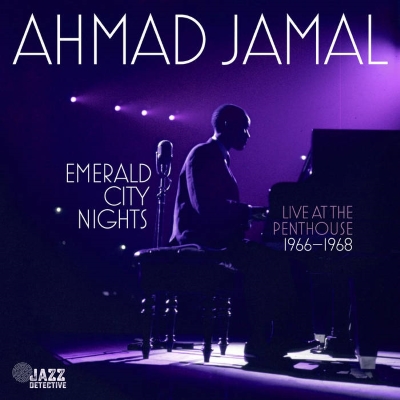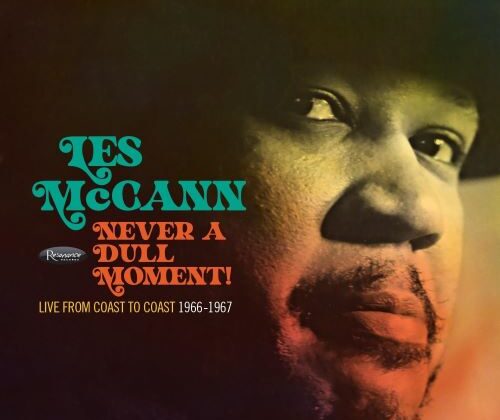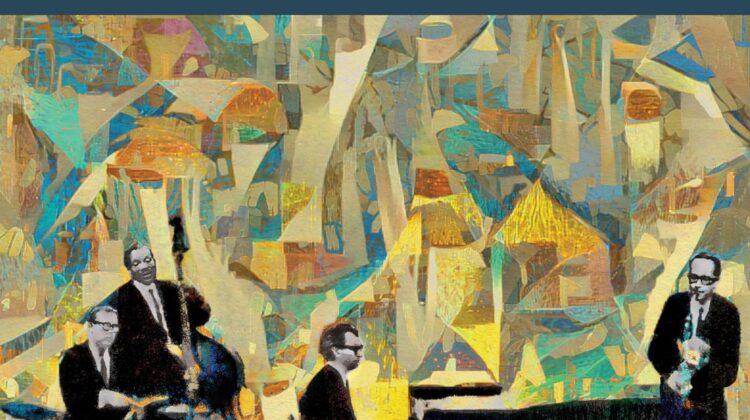Deeply personal, Noah Haidu’s most recent albumcomprises expressions of empathy, loss and respectfulness in ways that words can’t.
Slowly: Song for Keith Jarrett covers his feelings about the jazz icon’s influence, style and soulfulness, as well as Haidu’s heartfelt remembrance of his father. All three of them—Jarrett, Noah Haidu, and Noah’s father, Peter Haidu—shared serendipitous circumstances that led to the reconciliation of grace and grief , joy and sorrow, in Noah Haidu’s most recent album. Philosophical pondering, musically ruminated, within Slowly: Song for Keith Jarrett parallels those within Haidu’s theme for his previous album, Infinite Distances. His contemplation leading to Infinite Distances, based upon a line of thought from Rainer Maria Rilke, considers the unshared recesses of personalities, the essential unknowingness between people, even among the closest friends.
Nonetheless, sharing between human beings can and does occur, and so can one’s influence upon others. Such sharing occurred in three different ways to make possible the recording of Slowly: Song for Keith Jarrett.
The first happened when Haidu’s father often shared with him his affinity for Jarrett’s music.
The second was his dying father’s sharing of tickets to a Keith Jarrett concert at Carnegie Hall that he meant to attend with his son. Noah Haidu attended the concert alone after his father passed away a week before the concert; Noah didn’t realize until later that it would be Jarrett’s final performance.
And the third sharing was Jarrett’s passionate, ethereal outreach to audiences during his concerts. Noah eventually understanding the depth of Jarrett’s music’s spirituality. As a result, he connected with Jarrett’s emotional bearing as he allowed it to influence his own style. Such is the tradition of jazz as the passion for the music is passed on from generation to generation. And such is the way that a concert can deeply affect an audience member without the performer’s knowledge, so much so that the listener may remember the concert or a single eureka moment within it through the rest of his or her life.
To celebrate Jarrett’s 76th birthday, Haidu—supported by jazz icons Buster Williams on bass and Billy Hart on drums—released a tribute album this year. The project wasn’t without its challenges. Haidu had to overcome the COVID pandemic’s obstacles to record in November 2020 Slowly: Song for Keith Jarrett, even to the extent of wearing masks as the trio maintained a social distance in the studio.
One would think that a tribute to Jarrett would consist entirely of Jarrett’s compositions. One would be incorrect…partially.
Haidu does include one Jarrett piece, “Rainbow.” Even then, Haidu glides from “Rainbow” into a medley that includes his own composition dedicated to the legendary pianist.
However, Haidu intends, overall, to re-create the spirit of Jarrett’s music. Haidu identified with Jarrett’s trance-like immersion into music. Its transcendence—or the music’s “purity,” as Jarrett has described it—occurs as the music moves through the human spirit, and specifically through Jarrett’s as he non-verbally exclaimed as he played. Haidu immersed himself into Jarrett’s music to realize its essence in this deeply felt tribute.
In addition, Haidu honors Jarrett with a trio format of exceptional accompanying musicians, just as Jarrett recorded for 31 years on ECM Records with the exceptional Gary Peacock and Jack DeJohnette.
By including several standards on his tribute recording too, Haidu acknowledges Jarrett’s respectful purity of approach to standards throughout the jazz pianist icon’s stream of standards albums.
Nonetheless, even though he incorporates elements of Jarrett’s influential style, Haidu includes on Slowly: Song for Keith Jarrett compositions consistent with Jarrett’s style written by all three musicians who perform on the album.
On “Rainbow,”—from Jarrett’s 1977 ByaBlue and Silence albums with Dewey Redman, Charlie Haden and Paul Motian—Haidu performs with thoughtful delicacy, the waltz’s re-harmonized changes providing the introduction without accompaniment. Williams’ and Hart’s firm but subdued support comes in to allow for Haidu’s improvisation of crystalline clarity. And then, Haidu shakes things up with his own piece, “Keith Jarrett,” connected to “Rainbow” at first by the bass and drums’ rumba-like interlude. Williams’ invigorating vamp and Hart’s light splashes on the ride cymbal ensue, as does Haidu’s spirited song of joy that allows for full-fisted improvisation over the repeated chord pattern.
Haidu plays the title track as a solo in recognition of Jarrett’s individualistic influence on solo jazz piano. “Slowly” sets up modal mid-register movement of shifting two-chord patterns supporting crystalline treble improvisation. Not only is the tribute performed relatively slowly, but also wistfully—meditatively and apparently spur of the moment, recognizing Jarrett’s signature style—without undue rises and descents of volume.
The trio’s locked-in swing grows throughout the standard, “What a Difference a Day Makes,” as the strength of their like-mindedness builds to an increasing level of tension that’s relieved when Williams solos. Haidu comes in again for another chorus of improvisation, as if he, Williams and Hart are having such a good time with the performance that they weren’t ready for it to end. The trio’s unity of sound as a single voice constitutes a worthy reminder of the pleasure of performing that Jarrett’s trio famously make evident.
“Georgia” and “But Beautiful” achieve the same cohesion and dedication to the appeal of the songs’ original melodies, as if respecting the qualities of the human voice without re-harmonization or oblique re-imaginings. “Georgia (on My Mind)” wrings emotional depth out of the song with bluesy expressiveness in a largo tempo consistent with the album’s title. “But Beautiful” proceeds just as slowly and again without excessive elaboration as the trio wordlessly gets to the essence of the song’s feeling, including Williams’ extended masterful version of the song.
The remaining compositions supporting the album’s goal of dedication to Jarrett’s music come from Williams and Hart.
Williams’ “Air Dancing,”—a gorgeous jazz waltz first recorded with Shunzo Ohno, Herbie Hancock, Wayne Shorter, and Al Foster on Williams’ 1989 album, Something More—is played with stately slowness too, providing the space to stretch out with relaxed interaction. Haidu provides the ringing chords enhanced by Hart’s variegated colors and splashes on the cymbals. Haidu remains close to Williams’ melody of modulation from the original key upward to another, but not without trills and beautiful chorded accents, quickened three-note phrases to achieve coruscations, and at times a Brubeckian staggered meter opposing the Williams’ and Hart’s firm meter of three.
Melodic as well, Hart’s “Duchess,” from his albums All Our Reasons (2011)and Oshumare (1985),is notable for the spontaneity of the trio’s thought, particularly Haidu’s and Williams’ entwining of contrapuntal lines, even as the soloist’s and accompanist’s roles alternate. Hart the composer/drummer provides light tap-tap-tapping on the snare and hi-hat to help achieve a jewel-like totality of effect. Hart’s second contribution, the faster “Lorca” likewise from his album Oshumare, projects the joy of prolonged improvisation with the unified effect of an established trio.
The trio of Noah Haidu, Buster Williams and Billy Hart shows appreciation for Keith Jarrett’s decades of unforgettable jazz contributions in the best way possible: not through inadequate words, but through the invaluable outreach of music.
Artist’s site: https://www.noahhaidu.com

